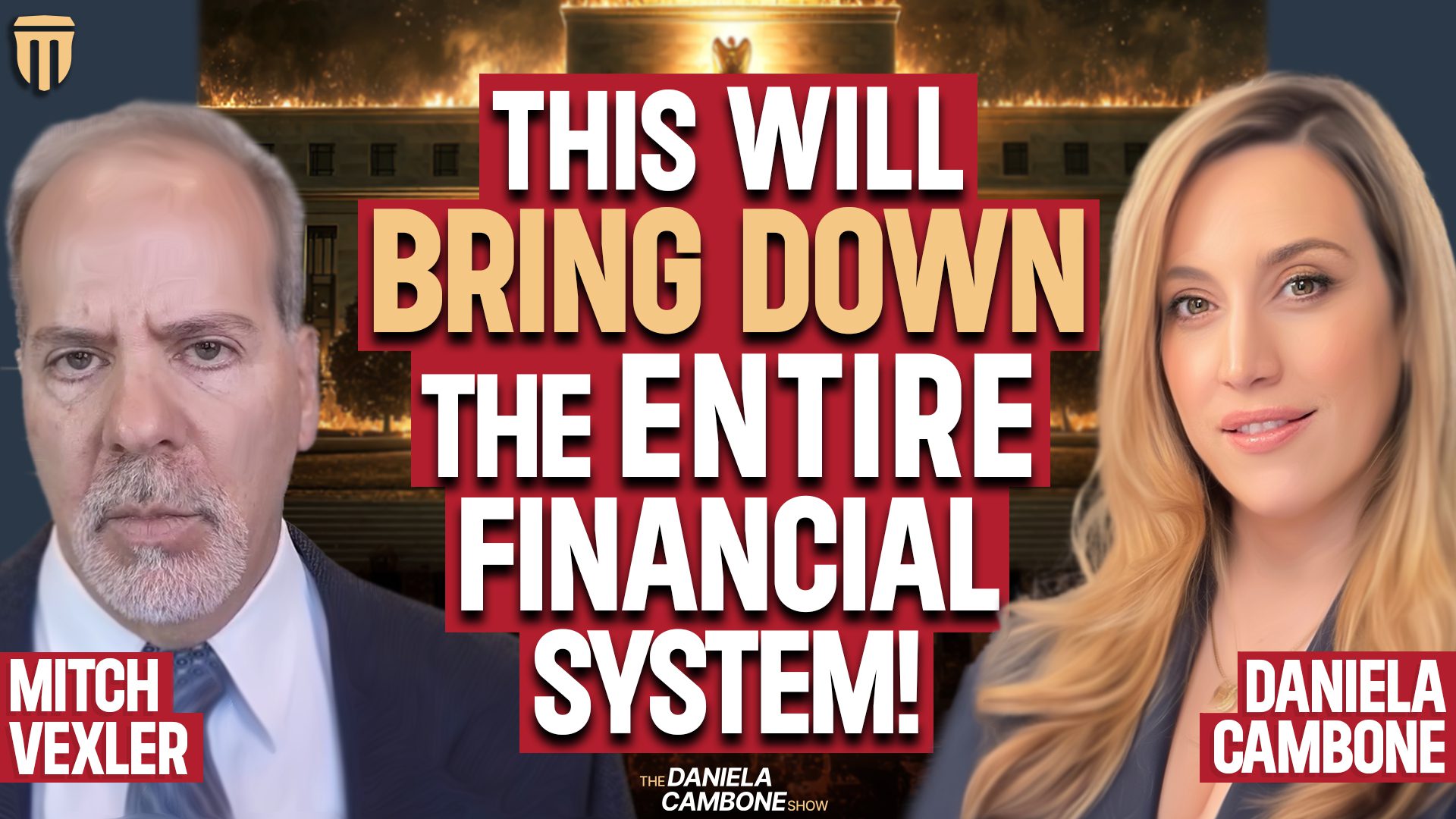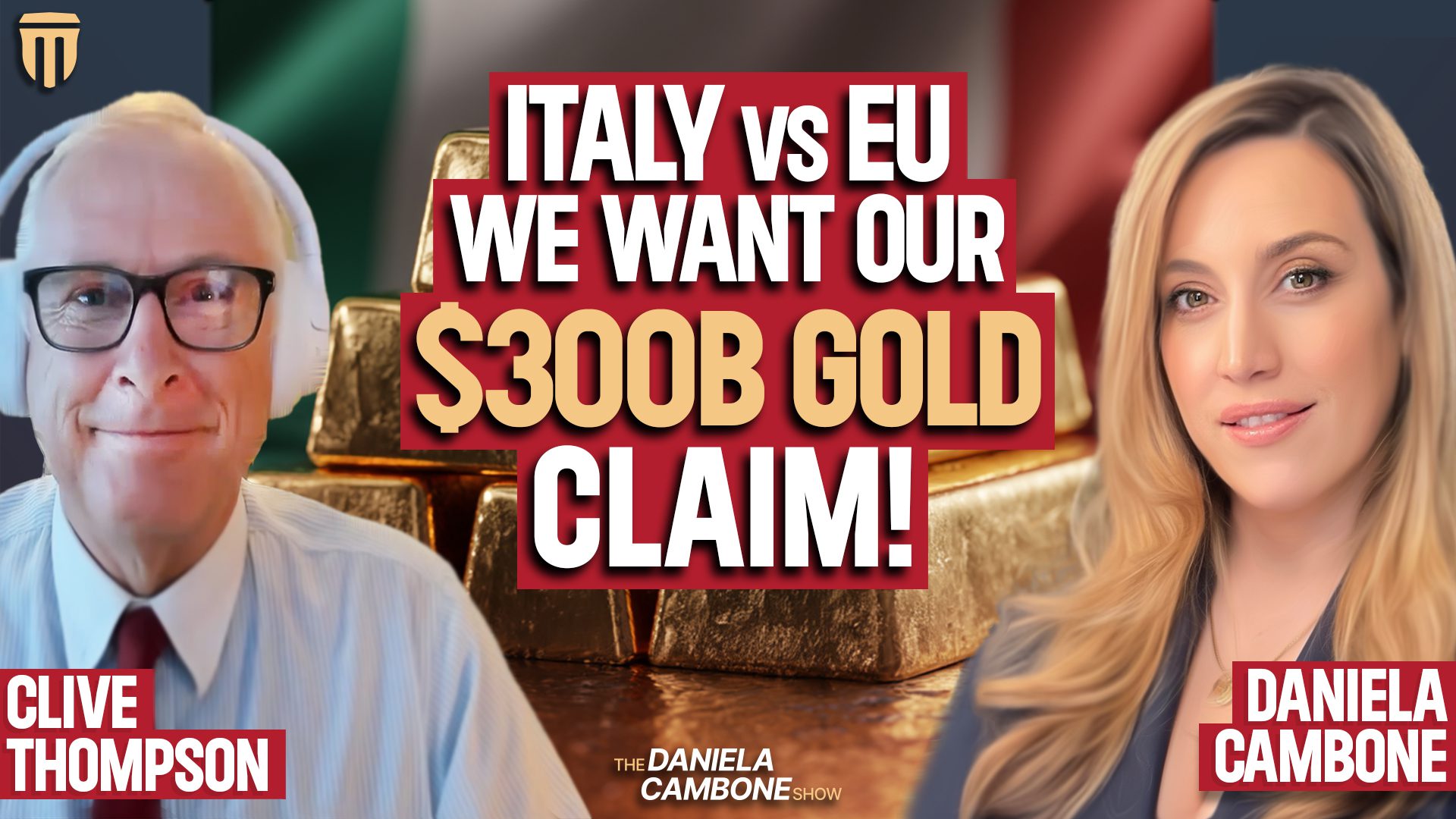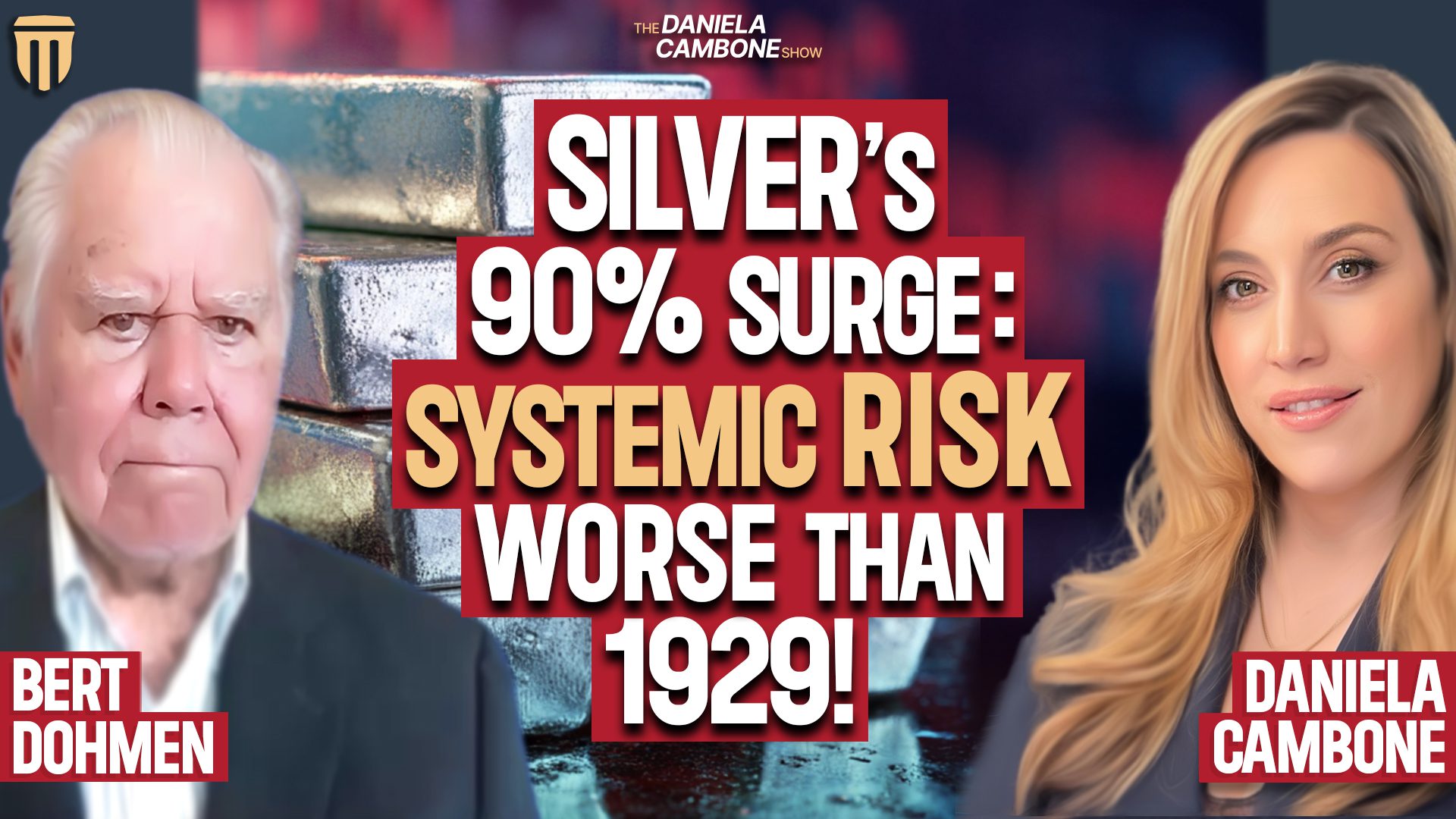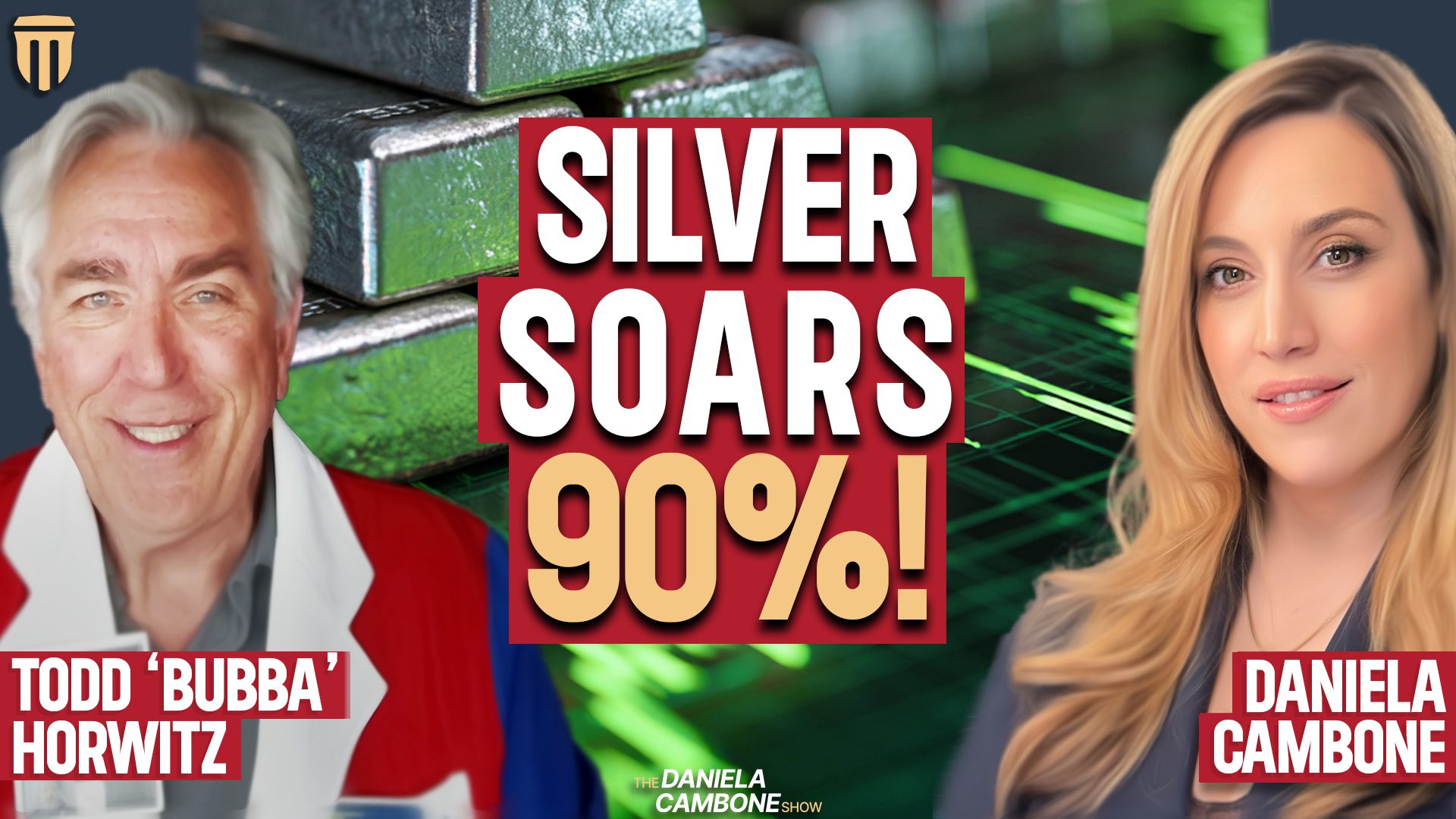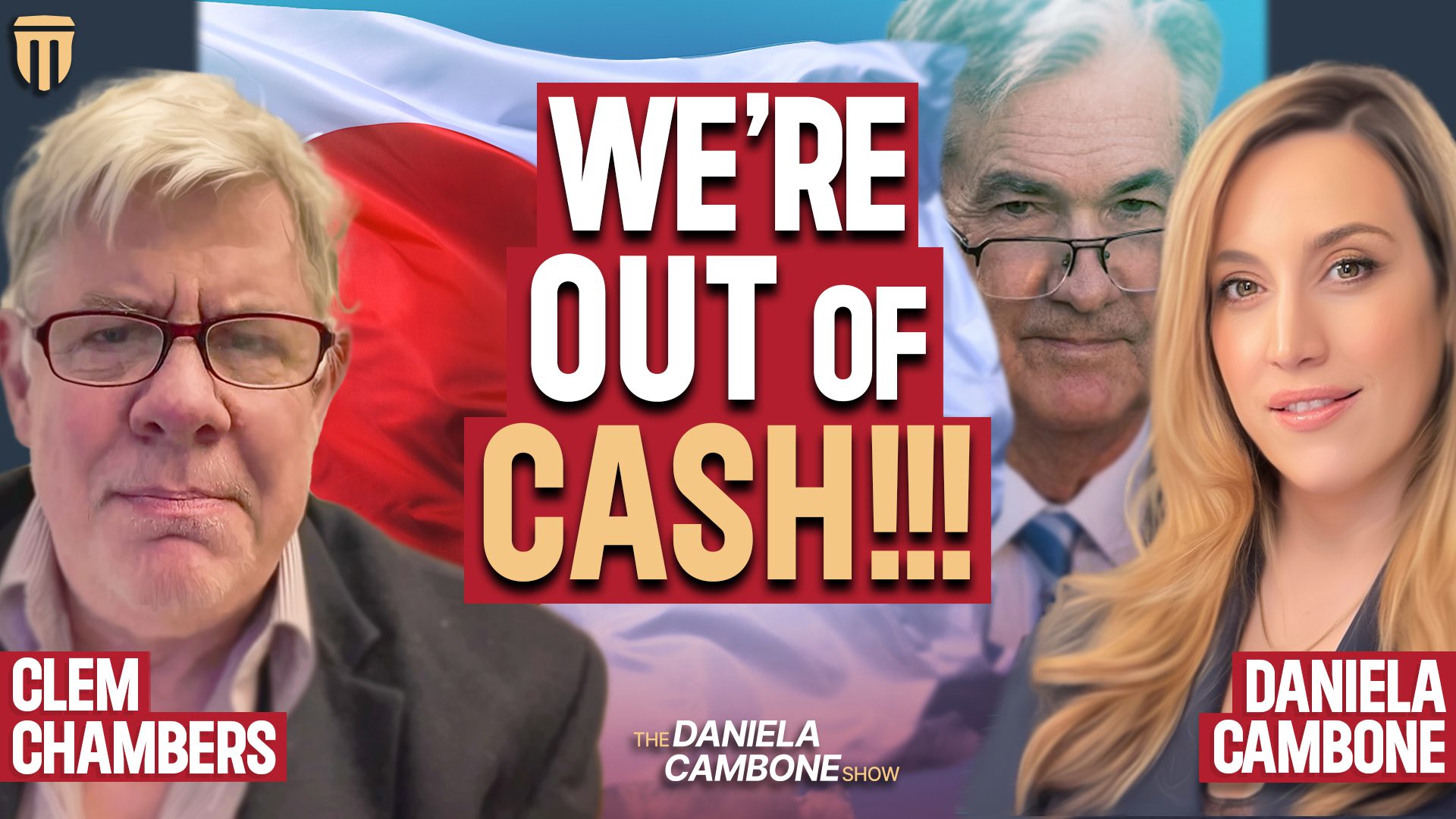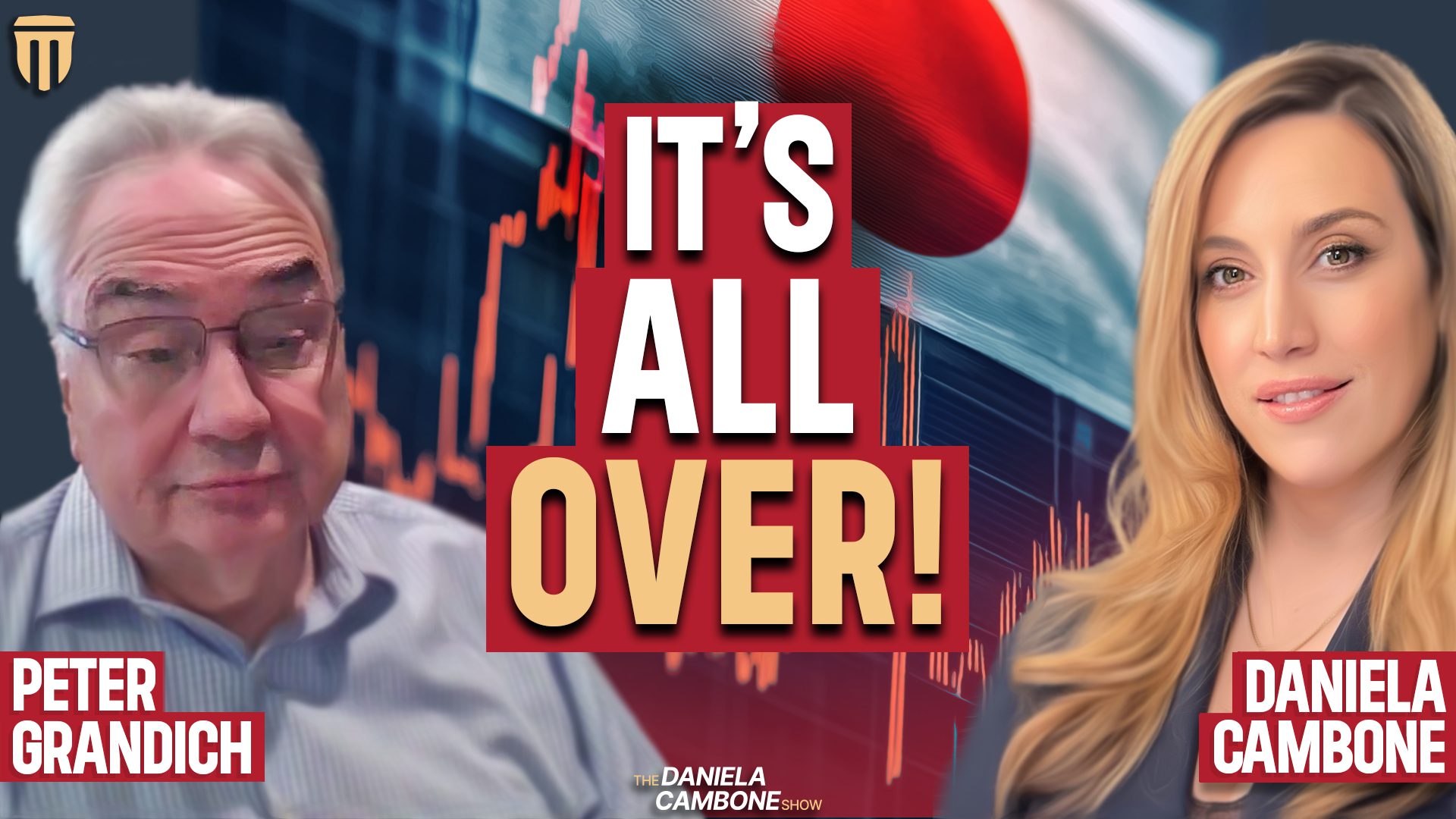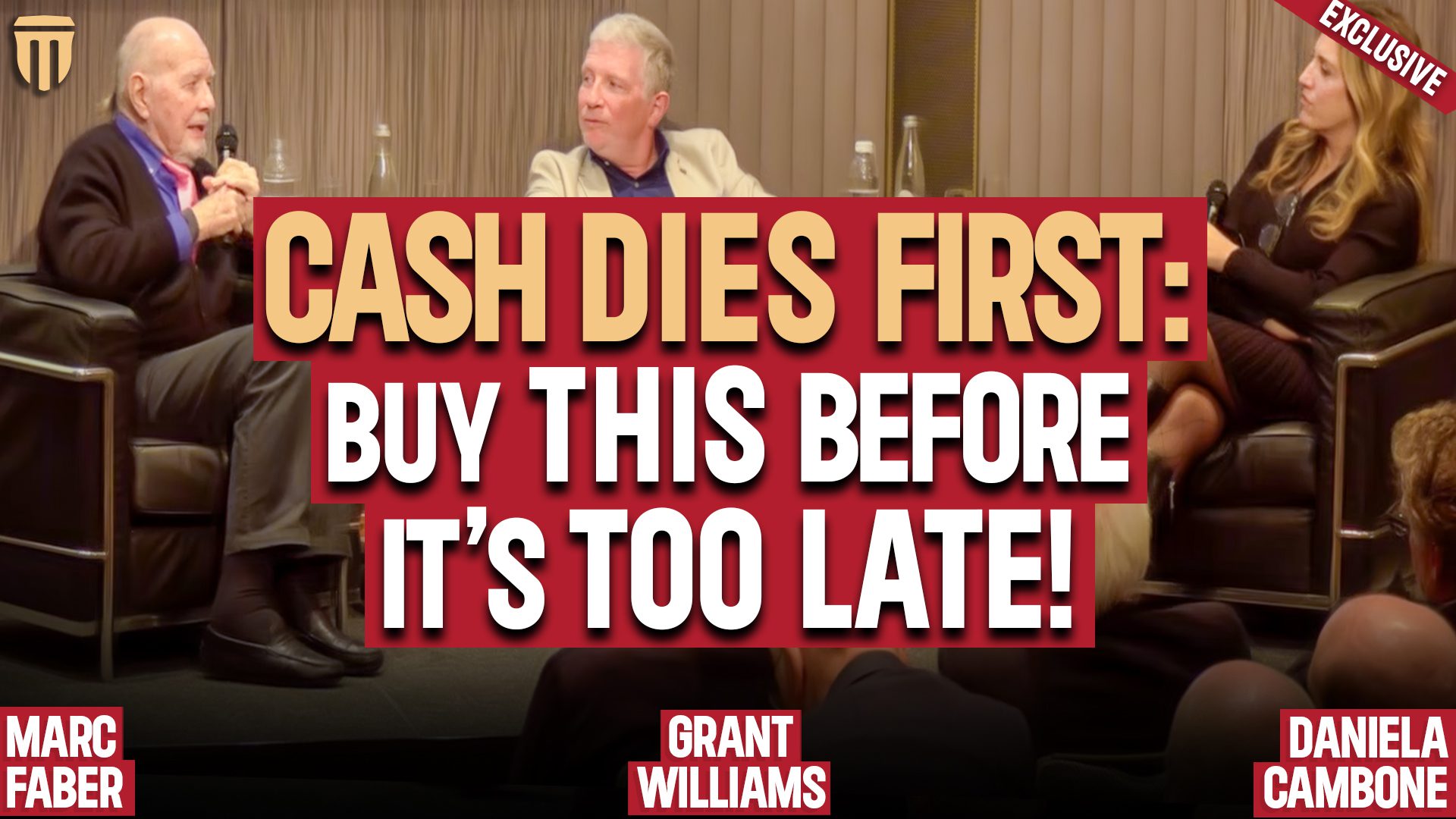Did the Saudis Just Kill the Dollar? Brent Johnson
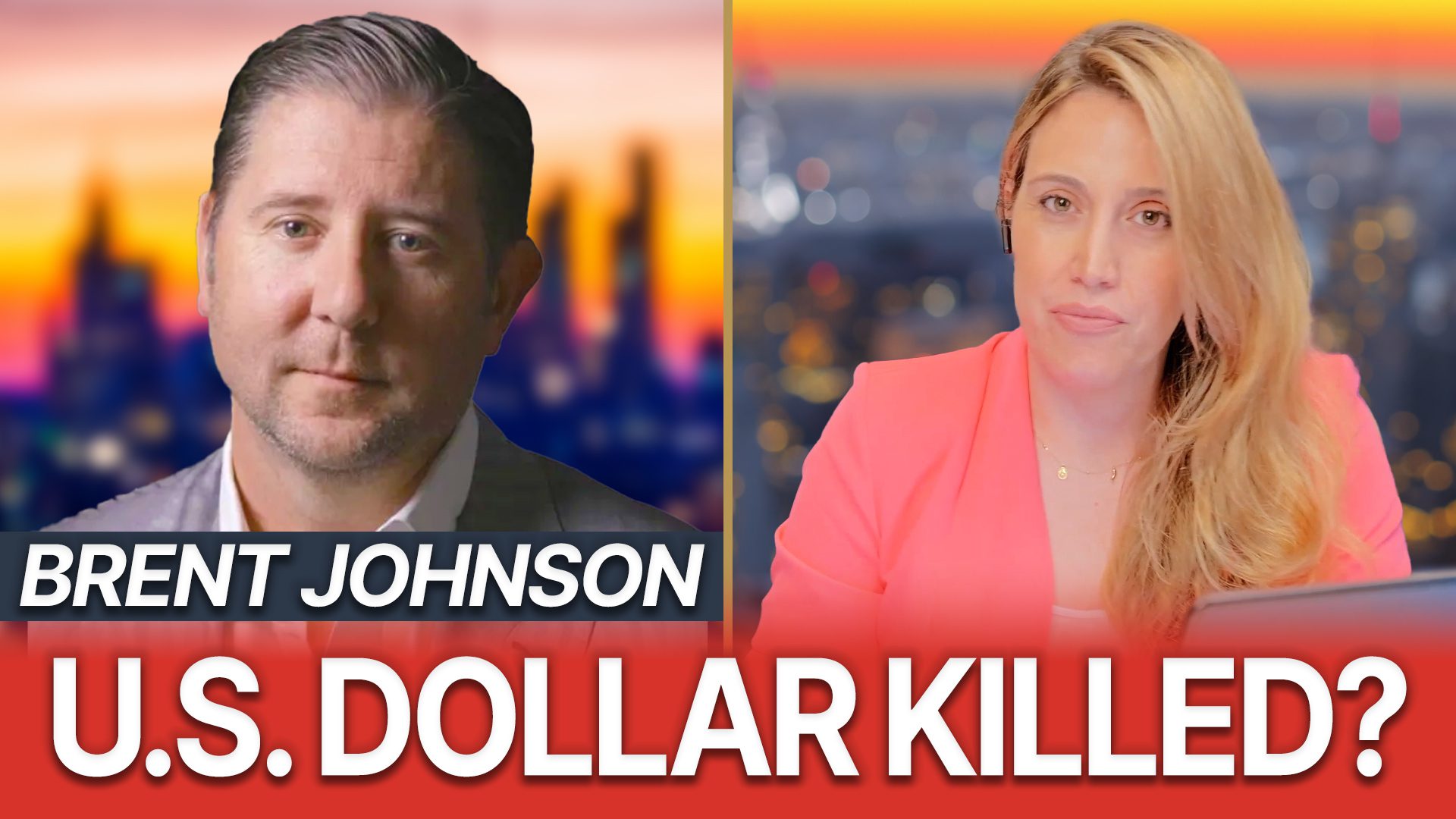
“The reason the U.S. needs to print more money is because there’s a demand for it,” says Brent Johnson, CEO of Santiago Capital and creator of the Dollar Milkshake Theory. He tells Daniela Cambone that the petrodollar will not be jeopardized despite recent headlines. Johnson explains the history behind why Saudi Arabia began selling oil primarily in dollars in the 1970s and why this practice will continue. “Saudi Arabia has always had the option to sell oil in currencies other than the dollar. They do so to a limited extent, but even when invoiced in another currency, it’s still priced in US dollars,” he says. Johnson also discusses the political troubles in Europe due to the Russia-Ukraine conflict, stating, “I feel like the whole Ukraine situation is, in many ways, the U.S. sacrificing Europe.” Watch the insightful interview to learn more about Johnson’s thoughts.
CHAPTERS:
00:00 Saudi Arabia and petrodollars
12:24 Petrodollar system
15:00 Saudi Arabia Joins CBDC Project mBridge
19:16 BRICS
24:08 The risk of Euro collapsing
27:46 ECB rates cutting
29:42 China gold buying
31:44 De-dollarization
TRANSCRIPT FROM VIDEO:
00:06
Hi folks. It’s clear based on many of these interviews that we are living in precarious times. And that’s why it’s imperative to build a strategy based around owning physical gold and silver. If you have not done so yet, I urge you to book a Calendly appointment with one of my incredible colleagues over at ITM Trading. It’s super simple to do. It’s a free information session and you’ll just walk away with a wealth of information.
00:34
You can do so by booking an appointment in the Calendly link in the description below of the video. That said, let’s get to today’s interview. Hi, this is Daniela Cambone. Welcome back to the Daniela Cambone show where we are going to be talking about that headline going viral of whether Saudi Arabia are they exiting their whole petrodollar deal with the US. While here to tell us…
01:03
where things really stand is Brent Johnson. He’s the CEO of Santiago Capital, an investment management firm based in Puerto Rico. He’s also the man behind the dollar milkshake theory. So he thinks he knows a thing or two about this folks. Brent, always good to see you. Welcome back to the show. Yeah, thanks for having me. It’s been a while, but I always enjoyed speaking with you and it’s an interesting time to be sure. Brent, I know you’ve been on the record saying this talk of Saudi dropping dollars is just silly,
01:33
Like I said, you’re really a historian when it comes to this matter. So can you break it down for us of what the story really is here?
01:44
Sure. Well, I appreciate you asking me this because I think this is a topic that is dramatically misunderstood. And it’s a really important issue because the petrodollar or Saudi Arabia selling oil primarily in dollars is really at the heart of my whole milkshake theory, or it’s what led to a number of other things, which kind of solidified the dollar. So let me take a step back and kind of…
02:13
just provide a little bit of history. The headline that everybody is referring to was somewhere, you know, I don’t know, a week, 10 days ago, somebody either tweeted out or said on a podcast that the 50 year petrodollar agreement slash treaty between Saudi Arabia and the United States was expiring on, I think they said June 9th or something. And as a result, Saudi Arabia wasn’t going to renew it and they were going to start selling their oil and other currencies and that would be the end of the dollar.
02:44
So there’s a few things wrong with this. Number one, Saudi Arabia has always had the option to sell things or to sell oil in currencies other than the dollar. And they do sell it in other currencies to a very limited extent, but even when they sell it in another currency and it’s invoiced in another currency, it’s still priced in US dollars. So that’s important to understand. But the other thing,
03:09
Is that this petrodollar agreement that is referenced in this email or this, you know, again, this, this, this Tik TOK video or whoever started that. I don’t know exactly who started it. You know, referenced a 50 year agreement, but there was never a ironclad, you know, ratified treaty slash legal agreement of this petrodollar deal. What happened was back in the seventies, you know,
03:32
The OPEC countries started an oil embargo after, so there was some military action between Israel and some other Arab countries. They felt that the US was unfairly siding with Israel. And so they started an embargo. And anybody, I was born in 72, but anybody that was alive in the early 70s will tell you that they remember the gas lines, people waiting in line to fill up their cars, prices spiked, and this had a really negative impact, not just on the US economy, but the global economy.
04:02
A year earlier, the US had delinked the dollar from gold. And so while previously, even though we were on a fiat system, it was linked to gold. Now we really just had fiat currencies trading against each other. And we had somewhat of a currency crisis, maybe not a crisis, but it was, it was, it was, it was on the way towards a currency crisis.
04:26
And the U.S. was running massive deficits in order to fund the Vietnam War and a number of other domestic programs at home. So Nixon said, you know, we need to make sure that someone is buying our treasury bonds. So he sent William Simon, who was the head of the treasury. So that’s part of the executive branch, sent William Simon to the Middle East to meet with OPEC countries, specifically Saudi Arabia. And the whole goal was to convince Saudi Arabia to buy treasury bonds and to store all of their oil revenues.
04:56
in the U S specifically treasury bonds, but other parts of the United States as well. And Simon somehow pulled it off. The basically the agreement was if you buy, or if you, if you use your oil revenues to buy treasury bonds, we will make sure that, you know, we’re not going to confiscate them, they will be safe. And then in return, we will help you.
05:24
develop your kingdom. We will make sure that, you know, your family stays in power, that the Sod family was in power, and they said, we will keep you in power. And it wasn’t a sure thing that they would stay in power. You know, there was other Middle East tribal families that, you know, wanted the throne as well. And so, Simon basically said, this is a way that we can work together. It’s good for everybody.
05:48
At the time Saudi Arabia’s economy was so small, there is no way they could have invested all of the oil revenues into their domestic economy. They didn’t have the room for it. They didn’t have the technology to do it. They didn’t have the capital markets for it. So the idea was that we will help transform your country into a world power, a technologically advanced society. And in exchange, you will help us fund our government by buying treasuries. And we will, you know,
06:17
provide you military support and defense and keep you in power. But this was all like, you know, a gentleman’s agreement at best. Again, there’s nothing written about it. And if you do see something written about it, I know somebody produced a memo at one point, you know, in all these headlines. The memo is somebody’s notes or somebody’s write-up of what took place. But again, it wasn’t like a legal document that had a specific end date. And the other thing is that Saudi Arabia was selling oil and dollars.
06:46
before this agreement and they’ve sold in dollars after this agreement. And part of the reason they sell in dollars is because now as a result of them starting to sell in dollars, you know, after this agreement, then the whole world needed dollars in order to get energy because everybody needs energy. And that really led to the explosion of the exponential growth.
07:11
of the Euro dollar market. And the Euro dollar market is really just dollar based credit that’s been extended outside the United States between entities that are not us entities. And that market has grown dramatically over the last 50 years. And as a result, the network effects of the dollar system and the Euro dollar system makes it the easiest and the most efficient for Saudi Arabia to continue selling in dollars. So.
07:38
That’s that that’s about the best summary I can give you i’m having to go into more specifics, uh, if you want But that that’s that’s that’s the genesis of this. I appreciate that so much and a lot to unpack there, but If I had to sum it up the saudis Really right now would have no incentive to stop using dollars
08:05
That’s right. I mean, again, the market is what is incentivizing them to continue using dollars. There’s no legal agreement that says they have to do it. Um, now if the U S if they stopped selling in dollars, I’m the first to say the U S would not like that and the U S would probably take measures to convince them to reverse course and come back to using dollars, but as of right now, the U S doesn’t have to do it because the market does it for them.
08:34
If, because I think you had said if Saudi stopped selling oil in dollars, it would cause a dollar shortage, making it harder for countries to service dollar debt. And the dollar’s value would likely rise.
08:47
Yeah, that’s the other thing that I think people get wrong on this. This headline was pushed around by many different entities as an argument for the end of the dollar. And now the dollar was going to fall and all these dollars were going to come rushing back to the U S and nobody else would use them. And as a result, the dollar would get inflated away and be worthless. Um, the problem with that is the, the, the, the people that put that theory forward, quite honestly, just don’t understand the Euro dollar market.
09:16
that either exists or they don’t understand the size of it. And what I mean by that is after this agreement, this gentleman’s agreement 50 years ago, because everybody needed dollars, that really forced the dollar back as the reserve currency. And since everybody was now using dollars and holding dollars because they needed energy, it made it the most common currency used amongst nations.
09:46
entities, institutions outside the United States. And that led to the explosion of growth of this Eurodollar market. But this Eurodollar market is a debt-based market. In other words, it’s loans that have been extended. It’s credit that’s been extended. There are physical dollar bills outside the United States, and there are probably actually more physical dollars outside the United States and inside the United States. But this market is, by and large, just credit that has been extended.
10:16
And so it needs that system and all that credit needs dollar liquidity in order to serve it on a regular basis, pay the interest, pay it off when it comes due. And so if, if Saudi Arabia were to stop selling oil and dollars, that would lead to less dollars circulating, but all of that debt still exists. It hasn’t disappeared. And so if there’s less supply, because there’s less circulation,
10:45
But the demand is still there to service all those debts. That’s when you end up getting a credit crunch and in a credit crunch, the dollar rises as opposed to fall. So that’s why I say the U S doesn’t really have to do anything. The market does it for them. And there there’s been somebody, some people that have suggested to me that, well, the rest of the world, they could just default on the dollar debt. They don’t have to pay it. That would potentially be the case if they had borrowed that money from the United States.
11:13
But it’s not borrowed from the United States. It’s borrowed from each other. So they would be defaulting on each other if they did that. If I hear… The second thing… Sorry, yeah, yeah, please, please. Let me just make one more point, because I think this is important. A lot of times the people that put forth the argument for the death of the dollar or the dollar falling is that there’s so much dollar debt out there that the United States owes that they’re going to have to print it in order to service it.
11:41
and we’ll never be able to do it all and we’ll have this collapse because the debt will never be able to pay off the debt and so it’ll get defaulted on. But that’s the same, but my point is if the U.S. will suffer grave consequences by defaulting on its dollar debt, why wouldn’t the rest of the world suffer grave consequences if they defaulted on their dollar debt? So in other words, I understand the argument.
12:07
But you kind of have to be consistent when you’re applying it to the United States and outside the United States. And the reality is debt does matter and defaulting on debt does have consequences. So if the rest of the world defaulted on all this dollar debt, there would be severe consequences. And if I hear what you’re saying correctly, Brent, the US is not worried or concerned. I mean, as you say, they would be angry if the Saudis were to exit the dollar.
12:32
But they’re not concerned about it happening because the way the game is set up, Saudi has to still be on it.
12:40
That’s largely correct. I mean, again, I think people sometimes misjudge the complexity and the genius, for lack of a better way of saying it, of the system. The US has global seniority. And what seniority means is that you have the ability to, it’s basically the ability to print global money. You can create money for nothing and the rest of the world uses it as a valuable commodity.
13:09
That’s what seniorage is. But the US is the only entity in the world that can create that out of thin air. For other entities to create it, they have to loan it into existence, which now means they are risking their own capital. They can’t just push a button and make it appear without taking risk. The US can push a button and make it appear without taking any risk. And so if and when someone tries to exit the system, the market punishes them.
13:37
That’s what’s happened in Turkey. That’s what’s happened in Lebanon. That’s what’s happened in Argentina. It’s what’s happening in China now. It’s happened all over the world. Many, many times is that when they get into a dollar shortage, their credit rating drops, the amount of interest they have to pay to get new funding rises. They’re not able to buy energy or other needed inputs. And all of a sudden their economy goes into a tailspin.
14:06
And that is a result of a dollar shortage, not having… And again, everybody will say that the US is going to have to print all these dollars. And I don’t necessarily disagree with this, but the reason the US needs to print more money is because there’s demand for it. If nobody wanted the dollars, why would they have to make more of them? And so, and again, the whole world runs on dollars. I know many people don’t like that. And it could change.
14:34
But as of now, the whole world runs on dollars. And to transition from a system that runs on dollars to a system that does not run on dollars, it’s possible. But that transition would be extremely volatile from an economic standpoint, and it would most likely be very violent from a military standpoint. Okay. I want to get back to that sentence because it could change is a key sentence. But before we go there and dig a little deeper.
15:05
And back to this, you know, Saudi news and fake news coming out and whatnot. But what we do know, Brett, is that Saudi has indeed joined Enbridge, the cross-border central bank digital currency project involving the central banks of China, Hong Kong, Thailand, and the UAE. Enbridge, as of now, does not plan to support dollar payments. How significant is Enbridge?
15:30
in this whole ecosystem and the fact Saudi just joined that they don’t accept dollars. What’s your take on Enbridge?
15:39
Well, I think what I would say is this is, in my opinion, this is another effort to get around the dollar system and figure out a way out from underneath the dollar. So I don’t deny that it exists. I don’t deny that efforts are being made. But again, it’s still at this point in the planning stages. It’s not in the implementation stages. And even if it gets to the implementation stage, and I’m going to make this in two parts, if it gets to the implementation stage,
16:09
And the rest of the world starts using this new system, and they start transacting in currencies other than the dollar, then we get back to the situation where dollars are no longer circulating as freely as they are now. And the supply of dollars goes down internationally, but all of that dollar debt still exists. So in order to move from the current system to the next system, they first have to reconcile.
16:37
all the US dollar debt that they already own. Now it’s possible, however unlikely it’s possible that the whole world wakes up tomorrow and everybody agrees, you know, how many billions of people agree we’re going to use this new thing for money rather than dollars and all of the dollar debt that’s denominated in dollars is now going to be denominated in this new thing. Now, I don’t know if anybody’s ever been to a family holiday dinner or a meeting with more than three people in it.
17:08
But getting three or four people to agree on anything is usually not easy. So to get the whole world to agree on exactly what this new money is going to be, how it’s going to be valued, how it’s going to be shipped around, how it’s going to be transacted, who’s going to implement it, who’s going to enforce it. It’s a pretty low probability event that that happens. Um, again, without a lot of volatility along the way. And then this is what I would say to the second part is if the whole world woke up and decided to do that.
17:38
They will no longer be doing business with the United States because the United States isn’t going to support it in that form. They’re not going to let you, they’re not going to let the rest of the world sell their goods into the United States in a currency other than the dollar. And at that point, they would probably use their military or whatever economic incentives or powers that they could do to put an end to this system. And in that, and even if that only lasted a week, that would be an extremely volatile week.
18:07
And so I don’t think there’s a way to transition from the old system to the new system without this, uh, you know, chaos, uh, for lack of a better way of saying the final point here, let me make one more point cause I think this is important. The in-bridge I think is a product of the bank of international settlements. I think the IMF is also involved. I I’m not sure on that, but those are largely institutions that are again controlled by the United States. So.
18:37
not totally controlled, but the US has control over the IMF and they have great influence over the Bank of International Settlements. So if you think that this new system is being rolled out and these entities are working against the United States and the United States has no idea what’s going on here and they’re just going to spring it on the United States out of the blue, that’s not reality. So again, I think it’s important to follow these things and it’s important to consider them.
19:07
I think it’s more important not to accept the headline at face value every time you see something that says the dollar is going to die. Agreed, 100%. It’s so important to have these conversations and that’s why I’m so grateful you’re coming on the show. But back to your point about family dinners and yes, impossible to get everyone to agree. But Brett, let’s bring up the bricks because this is the perfect segue. Yes, impossible to get them to agree. But if their common goal…
19:36
If they have that common goal of, yes, we want to destroy the US, we no longer want the dollar to be the reserve currency of the world, then maybe that’s enough of a motivation to get them to agree and to have them have their own common currency.
19:55
Well, I, yeah, I, I, I’ll accept that perhaps if, like I said, but that, that is kind of what it would take for this to even have a chance. And again, just because a bunch of politicians decide they want to do something doesn’t mean they have the ability to actually implement it and get the market to accept it. And I’ll give you an example for anybody out there who’s a business owner.
20:21
And if Joe Biden came out tomorrow or if Trump was president and he came out and he said, you can no longer do X and we really want you to do it this way instead of that way, would you automatically agree to do it or would you push back a little bit and, or, and would you support it? And the point I’m making here is just because, you know, President Lula of Brazil or Modi from India or Putin from Russia.
20:49
and Z from China get up on stage and say, Hey, we are going to do this and it’s going to be the greatest thing. Doesn’t mean that all the business owners in those countries are automatically going to stop doing business the way they’ve done it for the last 50 years and just automatically signed onto this new thing. So if the whole world does decide though, that they are willing to go through the economic chaos and pain.
21:15
that is required to repudiate all of this dollar debt to move to this new system. And these politicians are willing to accept the domestic horrors, economic horrors that go along with transitioning from the old system to the new system. I can’t completely rule it out. But the idea that we’re gonna wake up tomorrow, they’re no longer gonna be using the dollar. The US is in the state of chaos and the rest of the world is having a picnic.
21:44
That’s just that’s just not reality and that’s not the way the world works. Are you concerned at all with. The conversations and the visits that are happening, you know, Putin in North Korea and the bricks growing in capacity, in measure and countries being added and the United States continuously left out. Now they’re the odd man out.
22:12
Well, so I don’t know if concern is the right word, but this is definitely things that you should pay attention to. I am by no means saying that you should ignore what the BRICS is doing and that you should ignore the agreements that are being made bilaterally between China and Russia, and that you should just, you know, totally eliminate the idea that that Brazil could become a power. I’m not saying that at all. What I’m saying is that the, the ability to do what the BRICS wants to do is much
22:42
than the desire to do it. And so of course you have to look at it. And this is a big part of the world, right? And you can’t just be a bully forever. You can’t just tell everybody else what to do forever. You know, they will get sick of it and they will push back. And I think that’s what we’re seeing. We’re seeing, you know, parts of the world push back against the quote unquote rules-based order that they no longer feel serves their needs.
23:09
And these are important things. This is all kind of part of this fourth turning meme. You know, I feel like that whole fourth turning thing has become kind of a cliché, but I think it’s right. I think that’s what we’re in. We’re in this stage of world history where institutions that were once solid and strong are starting to fall. And global hegemony doesn’t last forever. Global reserve currencies change. And I think we’re probably in the early stages of that happening.
23:39
Imminent and inevitable are two different things and again Historically when transitions like that take place, they are not peaceful. They are extremely volatile and That’s kind of my main point here. I’m not saying these things can’t happen. I’m saying they can’t happen. You’re talking war Yes Well, I Know I know we have limited time with each other today, but I hope to get into these two points because speaking about
24:08
viral headlines and things that people run off with. I want to get your thoughts on headlines of, well, this is the end of the Euro zone, that Europe is collapsing, that the real reason that the US is helping to fund Ukraine is to save Europe. Your thoughts on the state of Europe, and is the Euro in the near future at risk of collapsing here?
24:38
So I do think that Europe is in a lot of trouble and it’s really hard for me to overstate that. And when I say a lot of trouble, I mean a lot with capital letters. The Euro itself, the currency and the, and the, and the, and the European union, that is in trouble as well. Because when things are good, people who don’t necessarily love each other are willing to tolerate each other. But when things start going bad.
25:07
even the most minor differences start to cause problems. And that’s kind of where we’re at in Europe now. Things aren’t as good as they used to be. And so now you’re starting to see infighting within the European block. But I think the more important thing is that the European Union was largely and is largely a…
25:36
do you want to call it, a vassal of the United States? And I think people probably don’t like it when I say that, but that’s real politics. I mean, that’s just the truth. And there were some people who thought that Europe would choose to leave the United States and side with Russia because of the combination of Russia’s commodities and European industry would be a world changer. But the political realities are much different. Now,
26:05
In a free market, maybe that is the way things should have happened, but, but, you know, we don’t live in a free market. Political, um, ideologues don’t make decisions that are always in the best interest of countries economically. And the reality is, is that the United States has been a protector of Europe since world war two. And I kind of feel like that the whole Ukraine thing, um, is, is, is in many ways the U S is sacrificing Europe.
26:33
And the US is taking the industry away from Europe and moving it to the United States. German industry is falling at a fairly rapid rate. The economies over there are not in good shape. The US is now selling energy to Europe more than, well, actually this month, Russia kind of exceeded the United States again, but for the last year or so, the US has kind of taken over selling energy into the United States. And so.
27:01
I feel like Europe is kind of caught in the crossfire of this East-West divide. Europe’s right on the border of Russia. Russia’s not going to stop. I don’t think NATO is going to stop. And so I think this conflict with Ukraine, rather than come to a peaceful end, is unfortunately probably going to continue to fester and perhaps even expand. And
27:23
I think the euro itself is in trouble because it’s a political union and not a currency, there’s no common debt. So you still have all these individual country problems that can’t be solved by the EU. I know that’s kind of a long rambling answer, but that’s, I just think Europe’s in a whole mess right now. Well, along those lines, I mean, we saw the ECB cut rates, Bank of Canada,
27:53
Australia Bank of England all expected to cut here Thoughts on These central banks moving towards cutting and what we’re seeing Coming out from the Fed here in the US your take on what I mean. Yeah I mean, that’s the thing, you know at the beginning of the year The dollar was fairly weak because everyone was expecting six or seven rate cuts Yeah, and and not rate cuts from the rest of the world or at least the rest of the world cutting at a slower pace
28:21
But now here we are in June, the rest of the world is starting to cut. You know, China continues to provide as much stimulus as they can to prop up their faltering real estate industry. And the U S still hasn’t cut and they might not cut. I think they probably will here in the fall, but so far they haven’t. And even if they do, the rest of the world is going to have to cut as well. As a result, the dollar has remained strong against foreign currencies. And if this continues, it has the problem to start to rise again.
28:50
You know, all you have to do is look back to 2022 to see what happens when the dollar rises versus other currencies. It causes problems all over the world. And I think Europe is right in the crosshairs of that because remember it’s not just that their currency falls versus the U S dollar, but again, you know, what started this whole conversation was energy being traded in dollars. So not only is their currency losing value for their goods and services at home, but it’s losing value.
29:16
against the ability to buy energy from abroad, which is extremely important. Europe itself is not a huge oil producer other than Norway. Norway is not in the EU, but the point is, as their currency loses value and all those debts still exist in dollars, the dollar debts become harder to pay and the needed imports become more expensive. And so, you kind of get it from both ends. I want to get your take on
29:45
Why central banks were hoarding and buying so much gold? I mean, we just saw China do 18 consecutive months of buying here. What do they want to do with all that gold? Why do they want it? Well, I think it’s probably threefold. So the first thing is I think they know, like many of us know, and many people every day are starting to learn more and more that fiat currency loses value over time. And, you know, if you look at
30:11
History tells you that fiat currencies fail and hard assets remain. And so I think they largely buy it as a form of insurance the same way that you and I probably buy it as a form of insurance. The other reason I think they buy it is not, well, I think it’s partly because with the whole US confiscation of Russian assets, they see that the bully is mad and they don’t want the same thing to happen to them and so they’re probably trying to get some kind of a neutral asset that they can own.
30:39
that’s not subject to the whims of the global hegemon. I think that’s certainly part of it. The other part of it, I think, is that they’re buying it because they know that their own currencies are in a lot of trouble. And the idea that, you know, people in China are waking up and saying, gosh, that J-PAL is really out of control. The dollar is gonna lose value. I’m gonna go buy gold today. I don’t think that happens. I think they wake up and they see that the yuan has fallen again and, you know,
31:06
They’re worried about their own currency falling in value, so they go buy gold. And then finally, the last thing, the last reason I think central banks buy gold is it’s a way to control it. I don’t think central banks want to go back to a gold standard. I think they would use it if they absolutely had to as a last resort, but I don’t think they’re buying it with the plan to reintroduce a gold standard. But if they can hold onto it, that keeps somebody else from holding onto it. And gold isn’t a really important asset.
31:35
And so I think if they’re if they would rather be in control of it than have their citizens be in control of it So I think that’s part of it Just to wrap here brent because I know you got to run um And getting back to you know, your your idea that you know, you don’t see the demise of the dollar anytime soon But is america On to it and I bring it up because I saw a headline Probably a few months ago that if trump were to be elected
32:03
He already has advisors looking at punishment for countries who back away from the dollar. So someone’s paying attention.
32:16
Yeah, so again, I’m glad you asked this because I want to make this absolutely clear. I am not head in the sand saying that none of this de-dollarization, none of this move away from American dominance. I’m not saying this isn’t happening. It’s definitely being attempted, and there’s great desire for this on many different countries’ part, I believe. But again, the reason the bully is the bully
32:46
is usually because he’s the biggest and the toughest guy. And if being a bully never worked, bullies wouldn’t exist in the first place. Now, I’m not saying I advocate this. I don’t like this. I’m just explaining the truth of the matter, right? Um, the reason that bullies exist is because people are scared. The bully is going to hurt them. And so if you get hurt enough times, you eventually try to figure out a way to get away from the bully, but you also.
33:15
that fear remains. And so, you know, I think there is definite efforts being made to try to figure out a way to get out from underneath the dollar based system and the rules based order. I just don’t think it’s nearly as easy to do as it is to say it. And let me make one more point. Let me make one more. Yeah, please. Please. I think sometimes when I explain these things, people think that I believe the US won’t get hurt in all of this.
33:44
That is not the case at all. I think the US will get hurt. I think the US has made many mistakes and I think there will be many consequences as a result of these mistakes. By no means do I think that the US will come out of this unscathed. My point is that the US, despite all its problems, despite all its mistakes, it still has the ability, because of all the vast resources it has, to throw knockout blows and to automatically write the US off
34:13
and assume that they are automatically going to lose global hegemony and automatically going to lose the global reserve currency, I think is being extremely, extremely naive as to why they got to that position in the first place. It still has cards to play. It still has many cards to play. And I think if you assume they don’t have cards to play, then you’re doing yourself a disservice.
34:38
Brent Johnson, I appreciate you taking the time to come on today. I thoroughly enjoyed your explanation of the history of the Petrodollar and just debunking so many headlines we see out there. It’s such dangerous times because people just float all these headlines and you just don’t know where the truth lies. So I appreciate you coming on the show, True. Thank you for having me. We’ll see you soon, Brent. And thank you for watching. We’ll have more great content.
35:05
coming your way. So be sure to stay tuned to the Daniela Cambone show and sign up at danielacambone.com.
https://www.telegraph.co.uk/news/2024/02/08/eu-isnt-about-to-collapse-its-worse-than-that/
https://twitter.com/SantiagoAuFund
https://www.youtube.com/watch?v=gkDflk5qmZM
